MercoPress. South Atlantic News Agency
Tag: interest rates
-
Thursday, November 1st 2018 - 08:50 UTC
Brazil leaves interest rates unchanged at an all time low: reduced risks of inflation
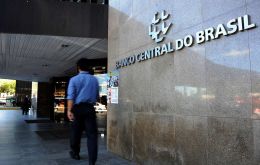
Brazil’s central bank on Wednesday held interest rates at an all-time low less than a week after the victory of far-right lawmaker Jair Bolsonaro in presidential elections allayed fears of a currency sell-off.
-
Thursday, September 20th 2018 - 08:37 UTC
Brazil leaves interest rates unchanged, as long as inflation remains in target range
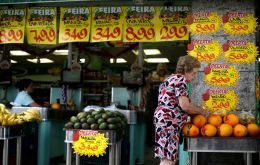
The Brazilian central bank on Wednesday held interest rates at an all-time low despite a currency selloff, as widely anticipated, but said it could “gradually” raise them in the future if inflation expectations spike.
-
Thursday, August 23rd 2018 - 08:52 UTC
Federal Reserve ready to raise interest rates, according to minutes
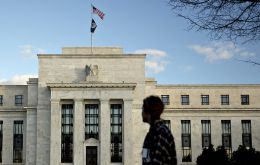
United States Federal Reserve officials discussed raising interest rates soon to counter excessive economic strength but also examined how global trade disputes could batter businesses and households, minutes of the U.S. central bank’s last policy meeting showed.
-
Thursday, August 21st 2014 - 07:31 UTC
“Slack of US labor market” keeping the Fed from raising interest rates

The US Federal Reserve hinted that a surprisingly strong jobs market recovery could lead it to raise interest rates earlier than it had been anticipating. At the same time, most Fed officials wanted further evidence before changing their view on when rates should rise, according to the minutes from the central bank's July 29-30 meeting.
-
Wednesday, December 12th 2012 - 20:35 UTC
“Soft” dollar until US unemployment rate falls below 6.5% says Fed
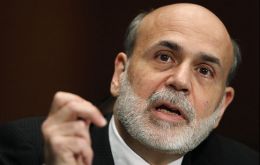
The US Federal Reserve has said it plans to keep interest rates at close to zero at least until the US unemployment rate falls below 6.5%. The Fed previously had a date-driven target, rather than a data-driven one.
-
Saturday, July 14th 2012 - 07:17 UTC
Chile and Peru, best performing economies of the region leave rates unchanged
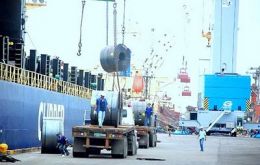
Chile and Peru opted this week against following the lead set by nations from Brazil to South Korea in cutting interest rates as economic growth and slowing inflation in the Pacific neighbors gave central bankers little reason to change monetary policy
-
Thursday, April 19th 2012 - 04:59 UTC
Brazil lowers basic rate to 9%, sixth straight reduction and more could come

Brazil lowered its benchmark interest rate to a near-historic low of 9% on Wednesday, as expected, but the central bank surprised with hints that more cuts may follow to revive Latin America's largest economy.
-
Tuesday, September 27th 2011 - 22:45 UTC
Inflation picking up and lower interest rates, forecasts Brazil central bank survey

Brazil’s central bank will miss its inflation target this year for the first time since 2003 according to a central bank survey of economists. Consumer prices will rise 6.52% this year, according to the median forecast in a Sept. 23 central bank survey of about 100 analysts published Monday.
-
Thursday, July 7th 2011 - 16:20 UTC
Euro-zone decides to contain inflation and hikes interest rates to 1.5%
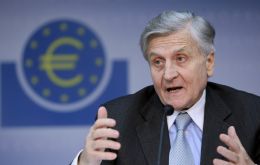
The European Central Bank (ECB) decided on Thursday to raise interest rates to 1.5% from 1.25% in an attempt to cool inflation in the 17-nation Euro zone. ECB president Jean-Claude Trichet said that inflation, now 2.7%, was likely to remain “clearly” above the ECB 2% target over the coming months.
-
Tuesday, June 7th 2011 - 23:06 UTC
Brazil inflation slows down in May; Central bank decides Wednesday on rates

Brazilian inflation slowed to its lowest level in eight months in May as fuel costs dropped. The sharp drop in the monthly inflation reading provided relief to policymakers who have battled surging prices this year with three interest rate hikes, public spending cuts and steps such as credit curbs to take steam out of the economy.
